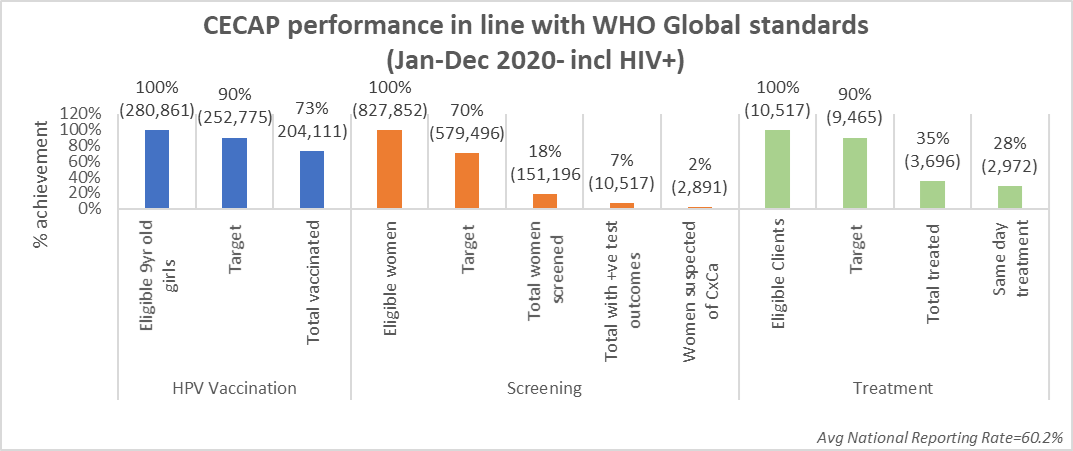After two years of collaborative work, the World Health Organization (WHO) today launched a critical publication to aid health care workers in the march toward cervical cancer elimination: The WHO Guidelines for Screening and Treatment of Cervical Pre-Cancer Lesions for Cervical Cancer Prevention.
The guidelines contain evidence-based recommendations for cervical cancer screening and were created in the context of the WHO global strategy to accelerate the elimination of cervical cancer, as well as the need to provide screening and prevention services to all women around the globe.
Dr. Linda Eckert–University of Washington (UW) Professor of Obstetrics & Gynecology, Adjunct Professor of Global Health, and technical advisor to I-TECH’s cervical cancer programs in Namibia, Malawi, and Botswana–served as one of the lead consultants coordinating the WHO guidelines.
“It has been a true privilege to join with WHO colleagues to collect and synthesize data and work with cost effectiveness modelers and our 60-member multinational Guideline Development Group, who shared their immense experience and knowledge to create these evidence-based guidelines,” said Dr. Eckert. “It is so hopeful for women around the globe, and I feel inspired thinking about how many women can be spared the suffering of cervical cancer through implementation of these guidelines.”
Dr. Laura Muzingwani, the lead physician for I-TECH’s Cervical Cancer Prevention Program in Namibia, was also an active member of the Guideline Development Group. Her experience and expertise in cervical cancer screening and treatment in Namibia enabled her to offer valuable guidance in the crafting of these recommendations.
In addition to the UW, contributing partners in the project included McMaster University, the London School of Hygiene and Tropical Medicine, the Clinton Health Access Initiative, the U.S. President’s Emergency Plan for AIDS Relief (PEPFAR), the United States Agency for International Development (USAID), and Unitaid, among others.



